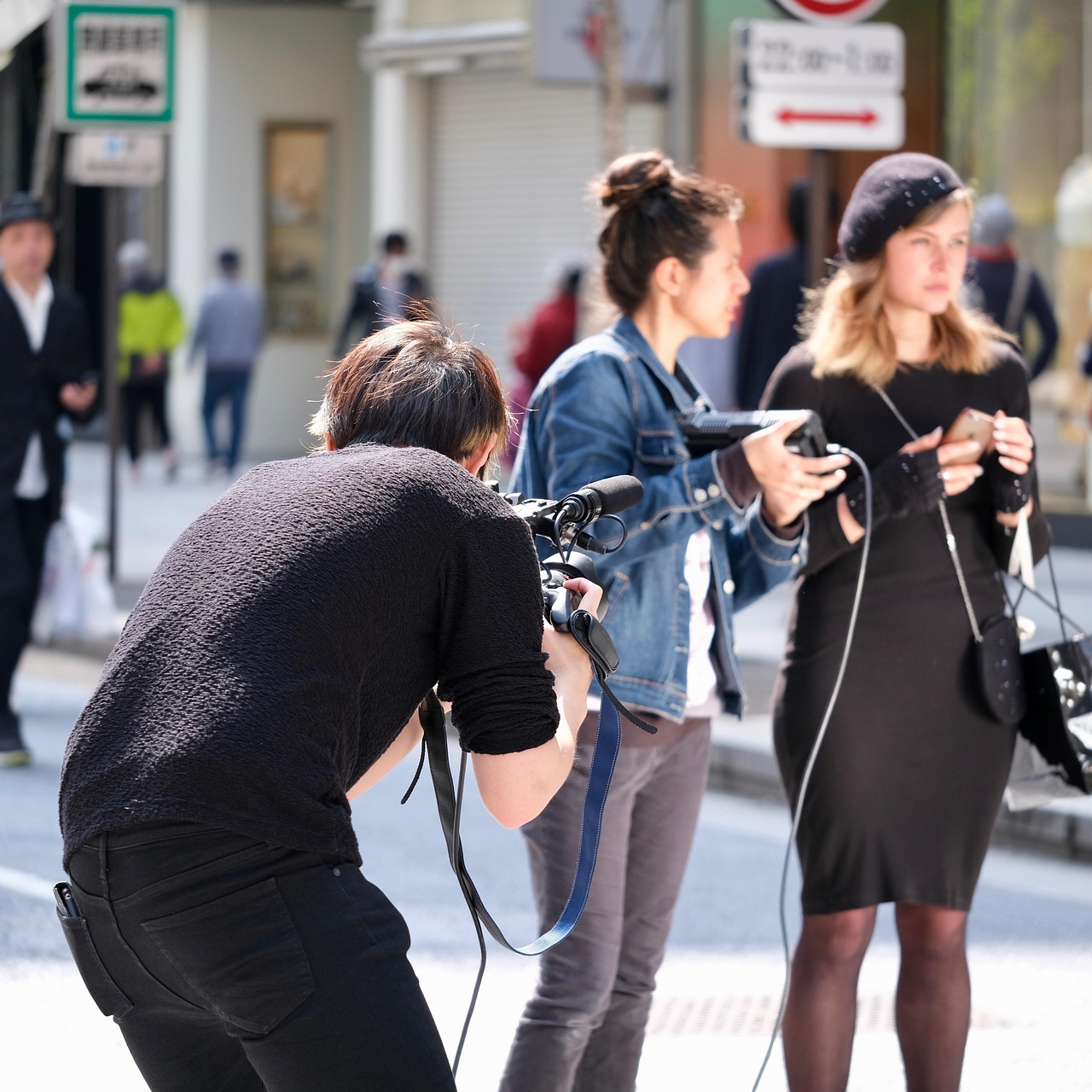Honestly, the prospect of dealing with the media can send even the most confident professionals into a cold-sweat panic. Whether you’re facing your first interview or trying to pitch that perfect story, media relations can feel like trying to navigate a maze while blindfolded. However, dealing with the media can be less scary and more purposeful conversations with the right approach.
Know Who You’re Dealing With (They’re Human too!)
First, journalists are not fire-breathing dragons waiting to trap you with trick questions (well, most aren’t). They’re professionals with deadlines, editors breathing down their necks, and an insatiable need for good stories. Understanding this reality is your first step toward successful media relations.
Before any interaction, do your homework. Read their previous articles, check their Twitter, and find out what they care about. Nothing impresses a journalist more than someone who knows their beat and speaks directly to their interests. It’s like dating: Showing you made an effort goes a long way.
Remember: Journalists aren’t looking to make you look bad (unless you’ve done something truly awful). They’re looking for interesting, accurate information that will engage their audience. Help them achieve that goal, and you’re halfway to media relations success.
Prepare Like Your Reputation Depends On It (Because It Does)
You wouldn’t give a major presentation without preparation, so why would you wing it with the media? Before any interview or media interaction, prepare your key messages, ideally three main points you want to convey, regardless of what questions come your way. What’s your key message? What do you want people to remember? You could create a “message house”, a few core points you always return to. Always keep it simple; if you can’t explain it to a 10-year-old, it’s too complicated.
Practice delivering these points concisely. The perfect quote is short, memorable, and makes a single, clear point. Think of it as Twitter before the character expansion; if you can’t say it in one breath, it’s probably too long for a quote.
And please, anticipate the tough questions! What’s the worst thing they could ask you? Prepare for it. What’s the complex nuance that’s hard to explain? Find a simple analogy. What’s the elephant in the room everyone’s thinking about? Address it proactively. Being prepared doesn’t mean being scripted; it means being ready to have an intelligent conversation without getting caught off guard.

Speak Human, Not Corporate (Leave the Jargon at the Office)
Nothing makes journalists’ eyes glaze over faster than corporate-speak. “We’re leveraging synergistic opportunities to paradigm-shift the customer experience journey,” tells them absolutely nothing except that you’re probably hiding something behind big words.
Instead, speak like you would to a smart friend at a dinner party. Use concrete examples, simple analogies, and vivid language. If your grandmother wouldn’t understand what you’re saying, simplify it. The media isn’t impressed by complexity; they’re impressed by clarity.
This doesn’t mean dumbing things down; it means making complex ideas accessible. Einstein said, “If you can’t explain it simply, you don’t understand it well enough.” Channel your inner Einstein when dealing with the media, and you’ll find your messages actually making it into the final story.
Respect Their Process (And Their Deadlines)
Want to be a journalist’s favorite contact? Respect their workflow. This means:
- Responding promptly to inquiries (even if just to say you’re working on it)
- Providing information in the format they need
- Meeting their deadlines (which are often tighter than you think)
- Not calling them right before their deadline with “just one more thing”
- Following up respectfully (once is fine, five times is harassment)
Understand that journalists operate in a world where minutes matter. That podcast interview scheduled for 3:00 PM means 3:00 PM, not 3:15. That request for comment needed “by end of day” means they’re probably filing the story at 5:30, not that they’ll get to it tomorrow morning.
Also, know that journalists have varying degrees of knowledge about your industry. Some specialists may know more than you do about your sector, while general assignment reporters might need more context. Adjust accordingly without being condescending.
When Things Go Wrong (And Sometimes They Will)
Even with perfect preparation, sometimes media interactions don’t go as planned. Perhaps you misspoke, the journalist got something wrong, or the headline completely misrepresents the content of the article. What then?
First, take a deep breath. Is it genuinely inaccurate, or just not the angle you hoped for? Not every story will be perfect from your perspective, and that’s okay. Pick your battles.
For actual factual errors, most reputable outlets have correction procedures. Approach these calmly with specific corrections, ideally in writing. “In paragraph three, it states our product launches next month, but the correct launch date is December 15th” is much more effective than “this whole article is wrong!”
For issues of tone or emphasis, consider whether a follow-up might be more effective than a complaint. Offer additional information for a follow-up piece or position yourself as a resource for future stories.
Stay On the Record
Repeat after me: “Nothing is ever truly off the record.”
Unless you’ve got a written agreement (and even then, be cautious), assume that everything you say could be printed. Be intentional with your words and stay within your messaging guardrails. As a rule, here’s my advice: if you wouldn’t want to see it on the front page tomorrow morning, don’t say it.
Building Relationships That Last (The Long Game)
The best media relations aren’t one-off interactions; they’re ongoing relationships built on mutual respect and value. Here’s how to nurture them:
- Be a genuine resource, not just when you need coverage
- Share insights, data, or trends they might find interesting
- Connect them with other valuable sources
- Respect when they pass on your story ideas
- Never, ever lie (your credibility is your most valuable asset)
The most valuable media relationships I’ve seen have spanned years, with both parties helping each other in different ways. These relationships weather the occasional miscommunication because they’re built on a foundation of trust.
Therefore, when dealing with the media as a newbie, note some of the recommendations because they can help you navigate the crazy but interesting world of public relations and marketing. Read about what every PR professional should know to keep abreast of industry trends!
I hope you enjoyed reading this far. Join me monthly on my journey into the PR world, where I discuss challenges, tips, pointers, and wins in the PR career space. See you soon!
Warm regards,
The PR Chic





